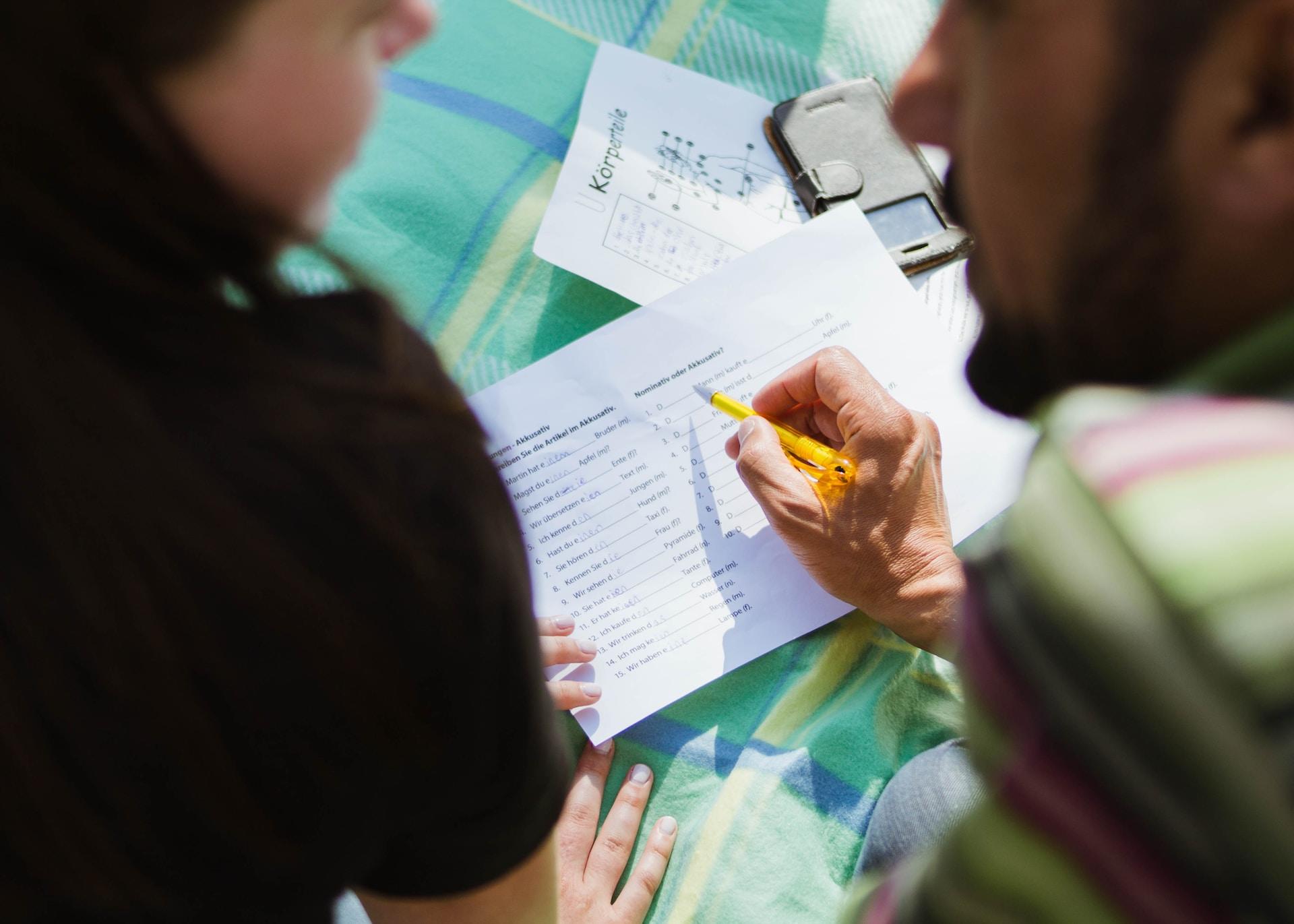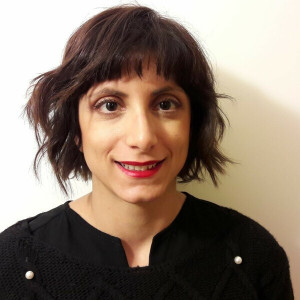If you've been paying French tutoring costs for any length of time, you surely know about French language certification exams. You might realise they are broken into three segments. Each corresponds with one or more levels of the Common European Framework of Reference for Language. This framework, called CEFRL, distinguishes six levels of language capability.
The lowest level, A1, describes a basic knowledge of the language. At the other end of the scale, we find C2, representing fluency. The B-level exams test the intermediate language abilities. This table shows how the French exams correlate with the CEFRL:
| DELF Prim | Primary school students aged 7 to 12 | Levels tested: A1.1; A1; A2 |
|---|---|---|
| DELF Junior | Secondary school students aged 12 to 17 | Levels tested: A1; A2; B1; B2 |
| DELF Scolaire | Secondary school students aged 12 to 17 | Levels tested: A1; A2; B1; B2 |
| DELF Tout Public | Adults | Levels tested: A1; A2; B1; B2 |
| DELF Pro | Adults | Levels tested: A1; A2; B1; B2 |
| DALF | Adults | Levels tested: C1 and C2 |
As you can see, CEFRL doesn't just distinguish between fluency levels. It also considers the exam candidate's age. Also, the French exam authority makes it easy for us to tell for whom which exam is meant.
In this article, we explore the DILF, DELF and DALF exams. We'll talk about who they're targeted at and help you decide which exam is right for your level of French ability. And then, we'll finish up with a few tips to ensure your exam success.

DELF Exam: Decoding the Acronyms
Of all the language exams this writer knows of, the French series makes the most clever use of its acronyms. We generally refer to this certification process as the DELF exam. DELF stands for Diplôme d''études en langue française. You don't need an advanced French degree to understand what that translates to.
DELF represents both the exam's generic name and a specific category of French certification. Meant for French learners of all ages, candidates may select the A1 exam - a beginner's ordeal, all the way to B2, which is high-intermediate. The DALF exams cover the C-level ordeals. DALF stands for Diplôme approfondi en langue française, meaning 'diploma of deepened knowledge of French'.
Any French learner anywhere in the world may sit their DELF/DALF exam in their home country. By contrast, one may only sit the DILF exam in France. It's meant for older language learners who've not long ago arrived in-country. The acronym I stands for 'initial', suggesting the higher levels.
Regardless of the exam, candidates test on all four language learning skills; they are reading and writing, speaking and listening. This is a pass/fail ordeal that test-takers must score at least 25% in every component. If you're in Victoria, you might search for a French class Melbourne to find a French tutor specialising in exam preparation to ensure your success.

DELF - French Exams for All Levels
The DELF exams are progressive but you don't have to start with the A1 exam and test your way up. If you have been taking French lessons for a while, your French teacher may declare you ready for the DELF B1 level. Or you could study a while longer, until you're ready to sit the B2 exam.
In your eagerness to prove your French language skills, you might have explored the various DELF offerings. Thus, you're clear that DELF exams target different skill levels. The DELF Prim tests students as young as seven, while the DELF Pro challenges adults and business professionals learning French.
The DELF Tout Public is open to all skill levels. It is the most frequently offered exam; the one you'll most likely sit.
As mentioned in the previous segment, you'll demonstrate competence in all four language learning areas regardless of which exam you sit. Only the time and intensity differ from one level to the next. Test takers have one hour and twenty minutes to complete the DELF level A1. Those sitting the B2 exam must prepare to spend two hours and 30 minutes in the testing centre.
Also, remember this exam's pass/fail structure. Even if you get every single answer right in every metric and nail the oral component, you'll only be awarded certification for the level exam you sat.
That seems obvious but we have to point it out because a classmate asked our French teacher if acing the exam meant an automatic upgrade to the next level. They believed that demonstrating excellence at B1 meant the examiners would deem their skills worthy of B2 certification. That's not how language certification testing works. We'll talk more about that in a moment.
DELF Rules and Registration Fees
In Australia, our 30 Alliance française centres administer the French language certification exams. If you're in New South Wales taking French lessons Sydney at one of that city's many Alliance chapters, you may be familiar with registration and exam particulars. For instance that, unlike other language exams, the DELF is not modular. If you score poorly on one section of the exam, you've failed the entire thing and you must do a complete retake.
You must pay your exam fee to confirm your registration. Often, language certification exams offer limited spaces so registering - and paying early ensures your place in the testing room. Once your registration is accepted, you'll receive a placement notification conditioned on full fee payment. If you fail to pay your registration fee within the timeframe your conditional registration email specifies, exam coordinators will give someone else your spot.
How much your exam costs depends upon which level you select to test at. The C-level exams will cost $400 in 2024. The current price for the A-level exams is $270; the B series costs $340. You will have to pay each time you sit a DELF exam, even if you sit the same test twice.

DELF Exam Considerations
As you've been taking French lessons for a while, you might be ready to sign up for your first DELF challenge. You're clear about what the exam entails, how to secure your place on exam day and how much it will cost for you to certify your French language skills. All that's left is to drill down into exam particulars.
Identify the Right Exam
Remember my mate who thought the examiners would decide what level French test-takers are capable of? They do, but only in the sense that they either pass or fail you on the exam level you selected. After a few minutes of roaring laughter, our French teacher made it clear that test takers must determine their level of French and select the proper exam for their level.
The Prim exam is for primary school students; it tests A1.1 to A2 levels. The Junior exam series is for secondary school students; it tests A1 to B2 levels. The levels are the same as the adult tests, but the topics discussed are geared more towards people of that age group. Finally, Scolaire is the same as the Junior exam but candidates take it in a classroom; a French language learning centre team administers it.
If you're an adult with a slightly more advanced level, your proficiency test can be DELF Tout Public or the DELF Pro. That latter is ideal for anyone aiming to work in a French-speaking country.
Finding an Examination Centre
Here, the Alliance française takes matters in hand. As the Alliance administers these exams, they have all of the particulars. You only need to load your local Alliance website to find testing dates and centre locations. While you're there, you can register for your exam.

Revise with a Specialist Tutor
If you're considering sitting the DELF, you must have a fair grasp of French, even if you're at level A1. Your intention to certify your skills (and pay that exam fee) suggests that you have big plans for your French language capabilities. You have the ability and motivation, and you've even found revision resources online. What do you need a tutor for?
If you've taken your school leaving exams (or are planning to), you must know the Number One rule of exam success: give the examiners what they want.
Taking an exam is never only about proving you know 'stuff'. Exams determine how well you can use what you've learnt. That's why every exam is a blend of true/false, multiple choice and comprehension exercises. The first type of question tests your knowledge, the second type challenges your ability to interpret nuance and the third explores your degree of fluency.
Your DELF exam will follow this pattern. Unfortunately, if you spend hours revising French words and phrases, driving yourself mad with grammar reviews and spending every spare moment immersed in French listening, you're only preparing yourself for 1/3 of your exam.
You need to internalise what it feels like to write according to examiners' specifications. Your writing must be logical and credible, and you must be able to produce this work within a set time. Naturally, spelling and grammar must be as correct as possible.
You need to know which elements examiners grade on; the style and format and the word choices they're looking for. Unless you've already had a go at the DELF, you won't recognise exam specifications like these. However, an experienced DELF tutor can coach you away from all the possible pitfalls. They can also help you practice your French skills as you prepare for your ordeal.















I have some experience in french language I will love to learn more about is language because I have passon for french language and I will love to study more.